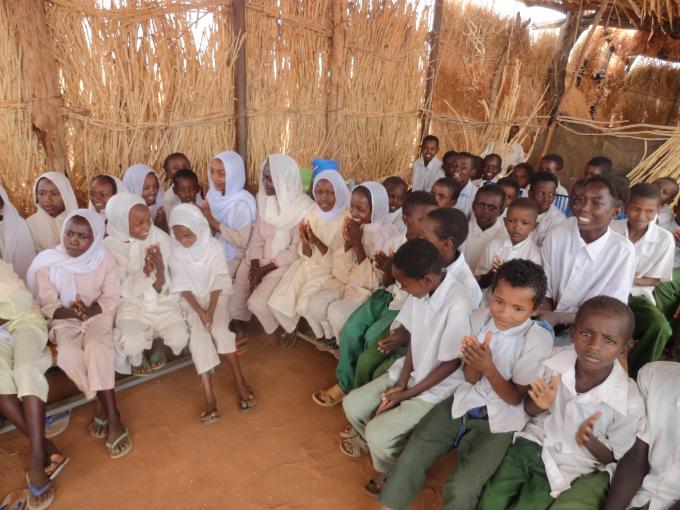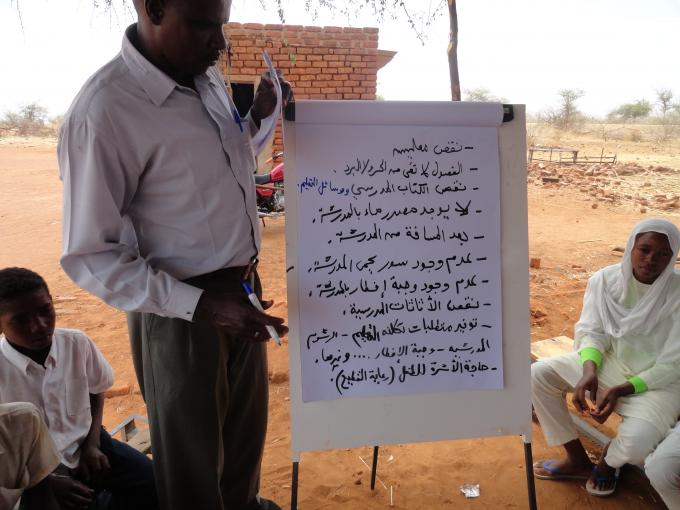Making the children voice at the centre of our work
Making the children voice at the centre of our work
Educate a Child is a new global initiative launched by Her Highness Sheikha Moza bint Nasser of Qatar, which aims to reduce the numbers of children missing their right to education worldwide.
This initiative is offering an opportunity for nomadic children in the African continent, particularly, those living in East Africa region, including Sudan. Nomadic communities represent 9.1% of Sudan of Sudan total population and they contribute 17% of the GDP[1]. The majority of nomads live in Western and Eastern States of the Country, namely, Kordofan, Darfur, Kassala and the Red Sea.

Sudan started an education system for nomadic children in 1990, which is still facing a number of challenges with 79.6% school age children still out of school[2]. Some of the challenges include; illiteracy and lack of awareness of parents, caregivers and communities, early marriage, poor school environment, school fees, shortage of qualified teachers, long distance between school and homes, which raise concerns on safety of children particularly young ones and girls, and the mixed schools amidst the conservative communities. Moreover, climate change, insecurity and separation of South Sudan (for bordering States) have affected the traditional routes of nomads.
At the initial stage of the proposal development, Save the Children organized a consultation to with 70 children (42 boys, 28 girls) about the nomadic education between the ages 7 – 13 years old. The purpose of the consultation was to give the boys and girls opportunity and space to voice their opinions about merits, shortcomings and what need to be done to make the nomadic education system more favourable and attractive to girls and boys.
Save the Children education team in South Kordofan State facilitated the consultation session using a child – friendly approach comprising short presentations, case studies, questions and answers, reflections, brain storming and icebreakers to keep children motivated and engaged. Amidst the session and while discussing the importance of girls education, one of the children, 13 years old, said “parents believe that educating their daughters is a waste of money and time, because when girls grow up a bit they will get married – so what is the point of investing on them?”
Through active interaction, the children were able to identify the key challenges facing nomadic education and what need to be done to offer better opportunities for nomadic children to learn and develop. Children inputs were taken seriously and incorporated in the proposal.
For Save the Children this is how projects for children should be planned. As an organization committed to child rights programming, participation of children is a must, and voices of children should be listened to, and their views have to be taken into consideration throughout the planning cycle.
“Education is the most powerful weapon which you can use to change the world” Nelson Mandela
 Sudan
Sudan 